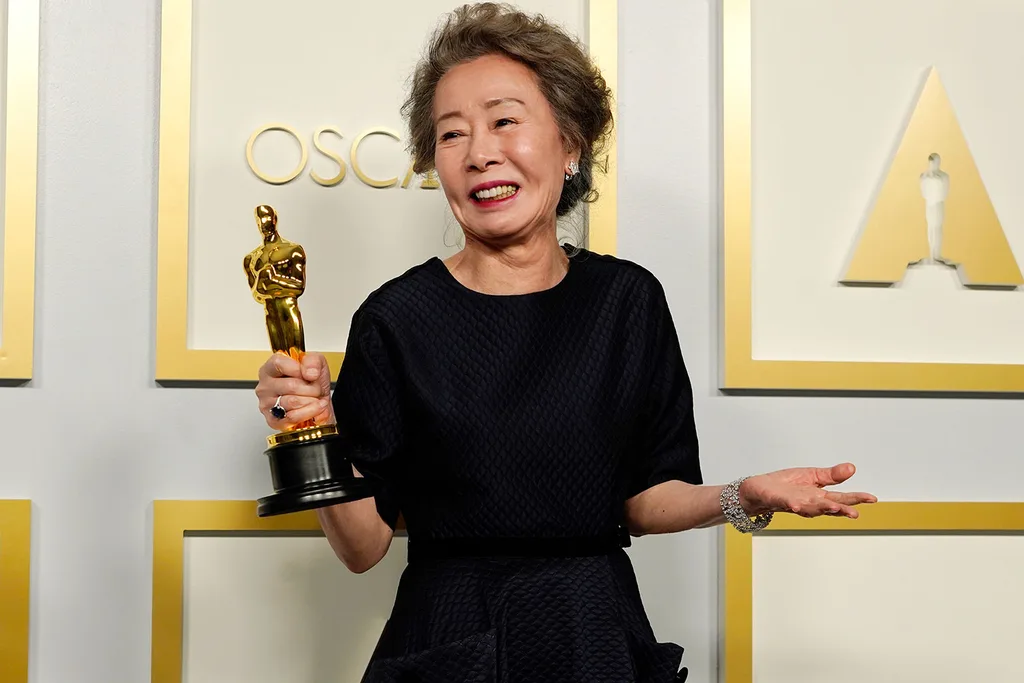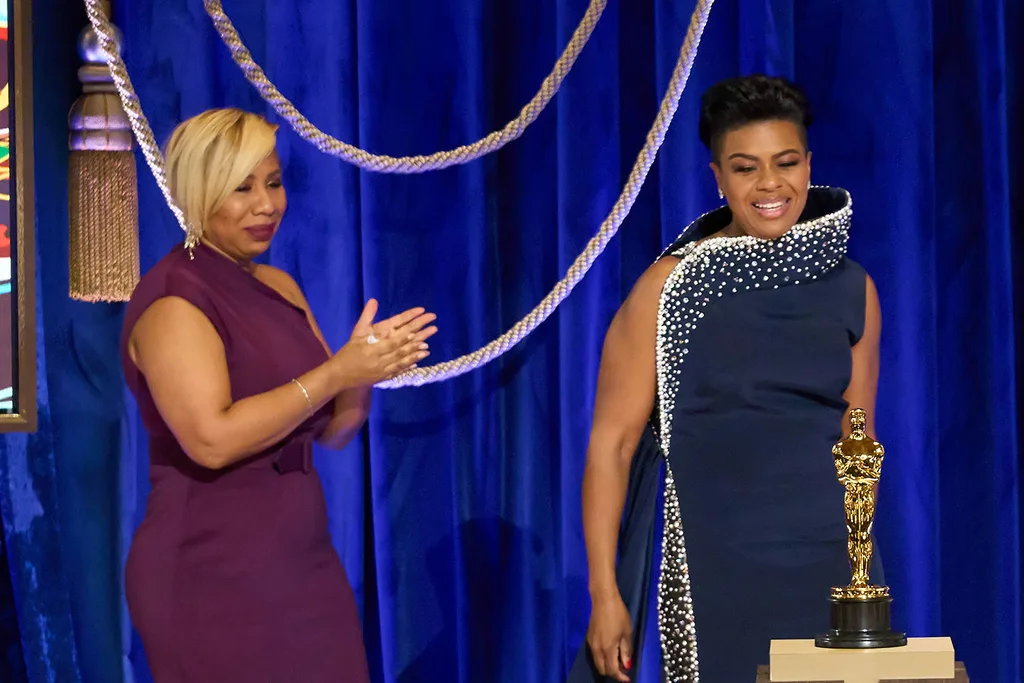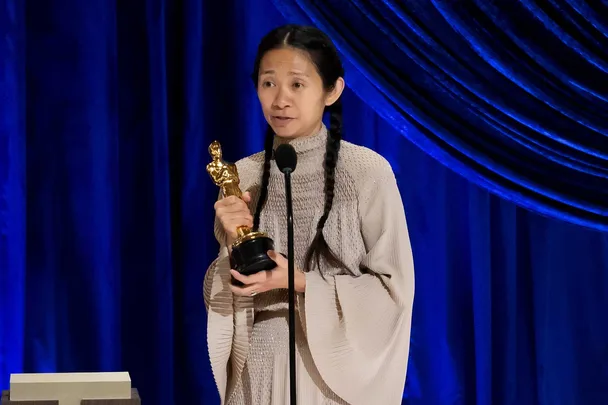Historically, the Academy Awards have not been kind to women – or anyone who isn’t a white, cis man, to be honest.
Like most Hollywood institutions, they are a fickle beast, plagued by the same issues the industry as a whole suffers: ignoring the accomplishments of women, people of colour and Black people, to name a few, but also just more generally not celebrating anything that isn’t pale, male and well, a little bit stale. They love a war epic, they love an ode to Hollywood, and they go absolutely wild for weight loss transformations.
Over the years, campaigns like #OscarsSoWhite have worked to bring these problems to the fore, and in response, the Academy has worked to increase its membership base. 2,000 new members were added between 2017 and 2020, with a 2018 study finding that those new additions bolstered the diversity, too. According to the study, in 2018 people of colour made up 16% of members , compared to just 8% in 2015. What’s more, of the 819 members who were admitted in 2020, 36% of them were people of colour and 45% women.
If the awards this year are anything to go by, the results are already speaking for themselves, with women coming out on top and the winners representing a far more diverse film industry. Amid a ceremony that was much more intimate and much more efficient (have we ever seen an Oscars so short!?), it was women who gave us something to truly celebrate.

Chloe Zhao made history as the first woman of colour to win Best Director, and is only the second woman to ever win the award in the Oscars’ 93-year history, following Kathryn Bigelow, who won in 2010 for The Hurt Locker. And in fact, prior to 2021, only five women have ever been nominated for Best Director: Lina Wertmüller (1976′s Seven Beauties), Jane Campion (1993′s The Piano), Sofia Coppola (2003′s Lost in Translation), Kathryn Bigelow (2009′s The Hurt Locker), and Greta Gerwig (2017′s Lady Bird). This year was also the first time two women – Zhao and Emerald Fennell for Promising Young Woman – made the cut in the Best Director category in the same year.
Zhao’s Nomadland also won Best Picture, however lost out in the Best Film Editing and Best Adapted Screenplay categories. Despite that, she was still the first woman to have received four nominations in a single year. It must be said: we simply have no choice but to stan! Zhao was favourite to take out Best Director, having spent most of the awards season giving acceptance speeches. She won Best Director at the Golden Globes, the Critics’ Choice Awards, the BAFTA Film Awards, and the Directors Guild of America awards. She was also awarded the prestigious Golden Lion at the 2020 Venice Film Festival, which is where Nomadland premiered.
Other historic wins included Minari’s Youn Yuh-jung who took home the award for Best Supporting Actress, making her the first Korean actor to ever win an Academy Award, and the first Asian performer to win an acting award since 1985. The 73-year-old actors win is a small step forward for the Academy, which has a long history of failing to acknowledge actors of Asian descent in acting categories. You only have to look to Parasite sweeping the Oscars last year without any of its cast being recognised for their performances to see there’s a very, very big problem. It’s across the board, too. Youn was the first Asian winner in any individual film category at the Screen Actors Guild awards and the first Korean actor to win a BAFTA award. Further, Steve Yeun, also of Minari, was the first Asian American actor to be nominated for Best Actor Oscar.

Similarly, it was great to see Mia Neal and Jamika Wilson win Best Hair and Makeup for Ma Rainey’s Black Bottom, as they’re the first Black women to win in the category. The film’s costume designer, Ann Roth, is also now the oldest woman to ever win an Oscar, at age 89. Just casually.
Finally, Fennell’s Best Original Screenplay win for Promising Young Women is the first time a woman has won a screenplay Oscar in 13 years. The last was Diablo Cody for Juno.
And so, we see the close of another awards season and one that gave us a small slither of hope that those in the future will be similarly diverse. As Mia Neal said in her acceptance speech: “I also stand here, as Jamika and I break this glass ceiling with so much excitement for the future, because I can picture Black trans women standing up here. And Asian sisters. And our Latina sisters. And indigenous women. And I know that one day it won’t be unusual or groundbreaking. It will just be normal.”
Here’s to a future where these wins won’t be cause for such big celebration – because they’ll just be the norm.










